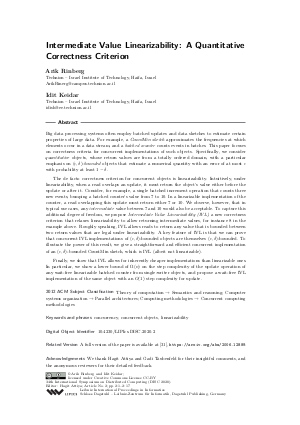LIPIcs.DISC.2020.2.pdf
- Filesize: 0.61 MB
- 17 pages

 Creative Commons Attribution 3.0 Unported license
Creative Commons Attribution 3.0 Unported license






























Feedback for Dagstuhl Publishing